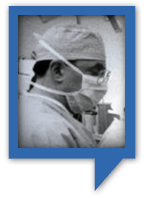In case you haven’t noticed, a hot new topic in education is “grit.” In order to reduce the long-standing 20% attrition rate of surgical residents, some say we should select applicants who have more conscientiousness or grit. A few months ago, a paper reported that surgery residents who dropped out of programs had decreased levels of grit as measured by a short-form survey. But due to unexpectedly low attrition rates in the programs participating in the research, the study was underpowered to show a significant difference in outcomes of high- vs low-grit individuals. It’s hard to argue with the premise that choosing applicants with high reserves of grit might lead to better retention and performance of residents. I blogged about this 3 years ago in a post called “Harvard says train residents and medical students like Navy SEALs.” Unfortunately, identifying who has grit will be much more difficult than simply testing those applying for surgical residency training. Below is the 8-item grit survey, which is scored on a 1 to 5 Likert scale.
1. New ideas and projects sometimes distract me from previous ones 2. Setbacks don’t discourage me 3. I have been obsessed with a certain idea or project for a short time but later lost interest 4. I am a hard worker 5. I often set a goal but later choose to pursue a different one 6. I have difficulty maintaining my focus on projects that take more than a few months to complete 7. I finish whatever I begin 8. I am diligent
The survey is rather easy to “game.” You can take it online and see for yourself. Figuring out how to achieve a high grit score should be obvious. You can avoid any uncertainty about passing the test by reading the paper that conveniently spells out which answers result in a high grit score. If the word ever got out that applicants to surgery residencies are being screened for grit, you can bet that only those with high “clueless” levels will score poorly. At least the clueless would be weeded out. Attempting to assess grit in an interview would be equally hard for the same reason. Picture this conversation:
Program Director: Do you finish what you start? Applicant: No, I don’t. Program Director: Are you a hard worker? Applicant: No, I’m not.
Who is going to answer grit-related questions in a non-gritty way? Here’s another issue. Despite rigorous background checks and thorough testing of physical and mental qualifications, many people selected for SEAL or astronaut training fail to complete it. Compare that to the process of selecting surgery residents, which involves sifting through several hundred applications for an average of four positions per year. Medical school grades and USMLE scores don’t predict resident performance or success, nor do dean’s letters and letters of recommendation from mentors. Most programs conduct two or three interviews of 40 or 50 candidates for a total of maybe 45 minutes. Even if one luckily identifies a gritty applicant, she may not end up in the program. Because of the way the matching algorithm favors the applicant’s choices, a program will almost never end up with all of its top candidates anyway. It’s a bit of a crapshoot. What can we do if we match applicants with average or low grit? An article in the Huffington Post says we don’t know how to teach people to be more gritty. I think grit, like common sense, is a trait that cannot be changed or improved. Assessing applicant grit levels might help, but the short-form grit survey is probably not the answer.


 PWeekly
PWeekly